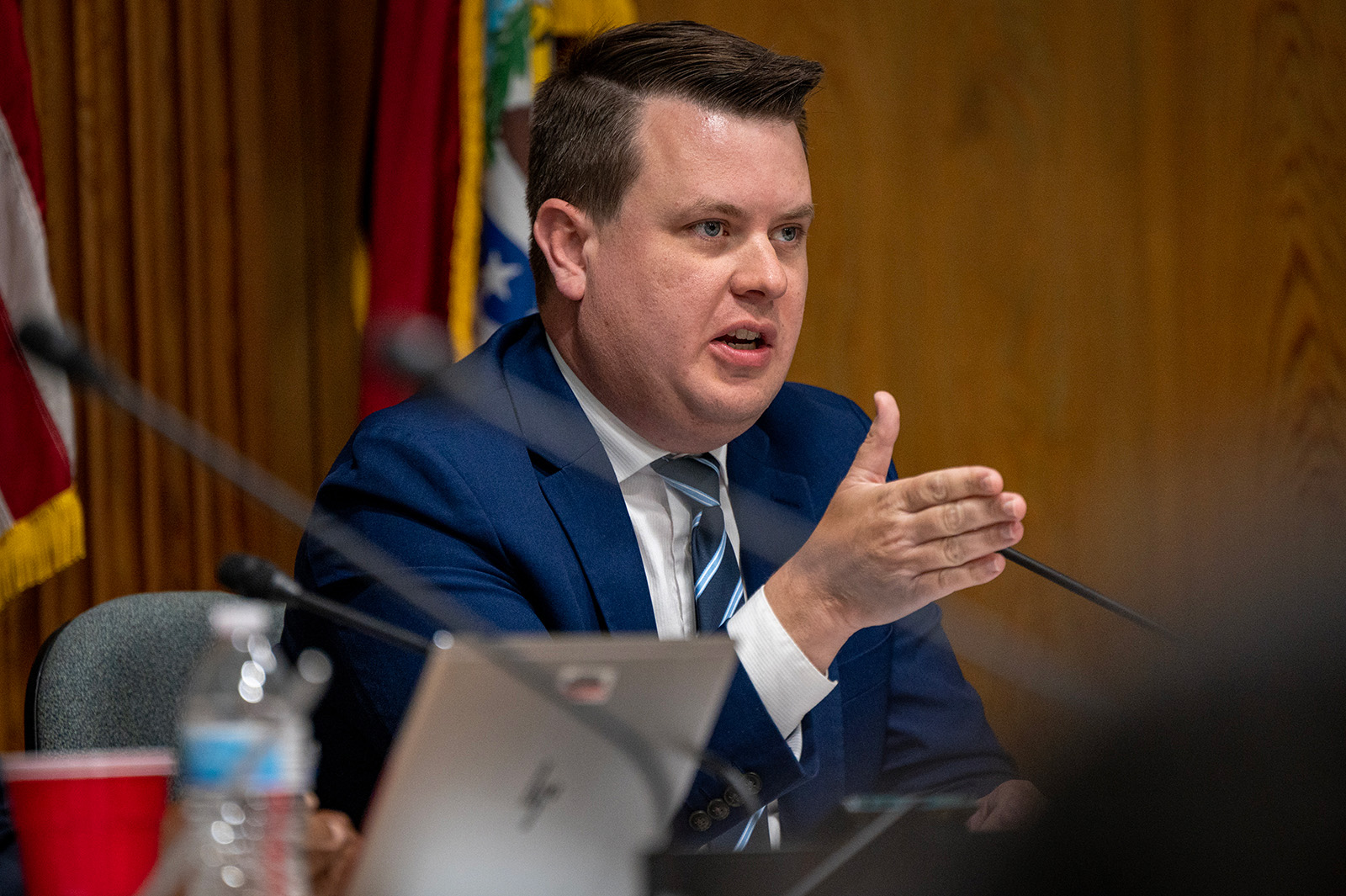Springfield voters are set to vote on a pair of changes to the city charter — one to double the length of the mayor’s term and another addressing the city’s conflict of interest policy, primarily for city employees.
At the council meeting Jan. 8, neither issue drew speakers for their respective public hearings, but a pair of council members raised concerns over the potentially negative implications of increasing the mayor's term from two years to four.
With a 6-1 vote, however, the majority of council saw the potential benefits outweigh possible drawbacks.
While the issue regarding financial conflicts passed 9-0 with no pushback from council members, it wasn’t easy getting it to this point. The ballot measure approved is the culmination of nearly a year of discussion.
Both issues are set to appear on the April 2 ballot.
Charter change would still limit mayor to eight consecutive years
Similar to the conflict of interest charter change, discussions regarding the length of the mayor’s term have been ongoing for some time, with talks dating back to 2022.
Currently, Springfield mayors are elected to two-year terms and are prohibited from serving for more than four consecutive terms, or eight years. The city’s eight other council members — one is elected in each of the city's four zones, with the remaining four elected at-large — are elected to four-year terms.
Under the proposed change sent to the ballot, the mayor’s term would be extended to four years, though the mayor would continue to be limited to serving eight years consecutively, or two terms.
The mayor is the city's elected leader, and performs some leadership and ceremonial duties, but the mayor is in many respects just another member of a nine-member council. While other council members are unpaid, the mayor is paid $200 per month, and receives some reimbursement for expenses.
The ballot language reads:
“Shall Sections 2.1(1) and 2.6 of the Springfield City Charter be amended to provide for a four-year term for the mayor instead of a two-year term, with the four-year term to first apply at the general municipal election to be held in 2025, and with the maximum consecutive years a mayor may serve to remain limited to eight years.”

In a Dec. 4 City Council Committee of the Whole meeting, during which the ballot language was approved, council members weighed the benefits and drawbacks of extending the mayor’s term length.
Some council members acknowledged that a two-year term gave Springfield voters more opportunity to hold the mayor accountable, and effectively change the entire direction of the City Council — with a majority of council seats up for election every two years.
However, the majority recognized the challenge of running a campaign every other year, the potential limitations that places on the pool of candidates and a potential hindrance it causes to progress in the community.
The change would first be applicable in the municipal election in April 2025.
Four-year term lessens mayoral, council turnover, allows less campaigning
The 6-1 vote on the ballot measure extending the mayor’s term came as a result of Zone 1 Councilmember Monica Horton abstaining from the vote, Zone 3 Councilmember Brandon Jenson voting against it and McClure recusing himself — though he is term-limited in 2025.
Though Horton noted that a four-year term would “ease the burden for the mayoral race as well as the mayoral role,” she emphasized the importance to at least acknowledge a barrier it could impose on some Springfield voters.
Horton pointed out that, if approved in April, the ballot measure would permanently give voters in council zones 1 and 4 more influence in determining the majority makeup of the City Council since a mayor would be elected every time constituents in those zones vote for their council members — creating an “inequity” for residents for zones 2 and 3.

Though Horton abstained from the vote, she added that the benefits outweigh the tradeoff.
Jenson rebuked the argument that a constant campaign mindset a mayor might have in a two-year term would negatively impact their job, pointing to — and effectively complimenting — Springfield’s progress under McClure’s leadership, and during his four, two-year terms as mayor.
He also pointed out opposition to the charter change communicated in a letter to the City Council in December 2022 by former City Attorney Howard Wright, who authored an amendment in 1984 that decreased the mayor’s term from four years to two. In the letter, Wright said the changes were prompted by dissatisfaction of residents over council members elected in the early 1980’s.
“While I truly believe in the integrity of every one of my colleagues on this council, it’s important to remember that we will not always be the council leading our city,” Jenson said. “So we should not measure the worth of an accountability system when things are going well but rather when things are not going well.”
Zone 4 Councilmember Matthew Simpson pointed to the fact that four-year terms for mayors are common in larger cities, including in St. Louis and Kansas City, and added that longer terms allow council members to focus on long-term issues.
“If you’re constantly up for reelection, your incentive is to stay in campaign mode and your incentive is to focus on short-term gains that translate into votes,” he said.

Revised conflict of interest policy still restrictive, but allows wiggle room for city staff
Having been discussed prior to the April 2023 municipal election, a ballot measure changing the charter’s conflict of interest policy has received input from current and former council members. Eleventh hour talks broke down in January 2023, and the issue was punted to the City Council Finance and Administration Committee.
Those talks were revived at the Dec. 4 Committee of the Whole meeting. Though council members struggled to immediately find consensus, further input was built into ballot language presented on Jan. 3:
“Shall Section 19.16 of the Springfield City Charter be amended to require enactment of a code of ethics, to be reviewed by Council not less than every other year, revise provisions to address employee violations with disciplinary action up to and including termination, and add a legal defense to forfeiture of office or termination of employment if a prior, written advisory opinion from the City Attorney was obtained and relied upon in good faith?”
The charter change would allow city employees to undergo a more traditional review process, where the facts of a case would be weighed in determining how to discipline a financial conflict of interest, rather than automatically terminating an employee.
Council members previously considered more closely aligning the policy with state statute, which would’ve permitted elected officials and city staff some amount of financial interest. However, the City Council agreed to keep the city’s policy stricter than the state’s — continuing to bar any financial conflict. Even so, the added disciplinary review process for city employees would provide some protection and a potential alternative to them losing their job.
At the Dec. 4 meeting, Simpson said the current policy isn’t “fair” to city staff, especially those with no purchasing power or very distantly tied to a conflict, and is also harmful to the city.
A violation of the policy by council members, officers and board members would continue to result in their forfeiture of office or employment. A written advisory opinion by the city attorney, obtained prior to a violation and in good faith could be used as a defense to a forfeiture, though the violation would still nullify whatever contract led to the conflict.
The charter change establishes a code of ethics for all elected and appointed officials, board members and city staff, and requires the City Council to review the policy at least once every two years.


